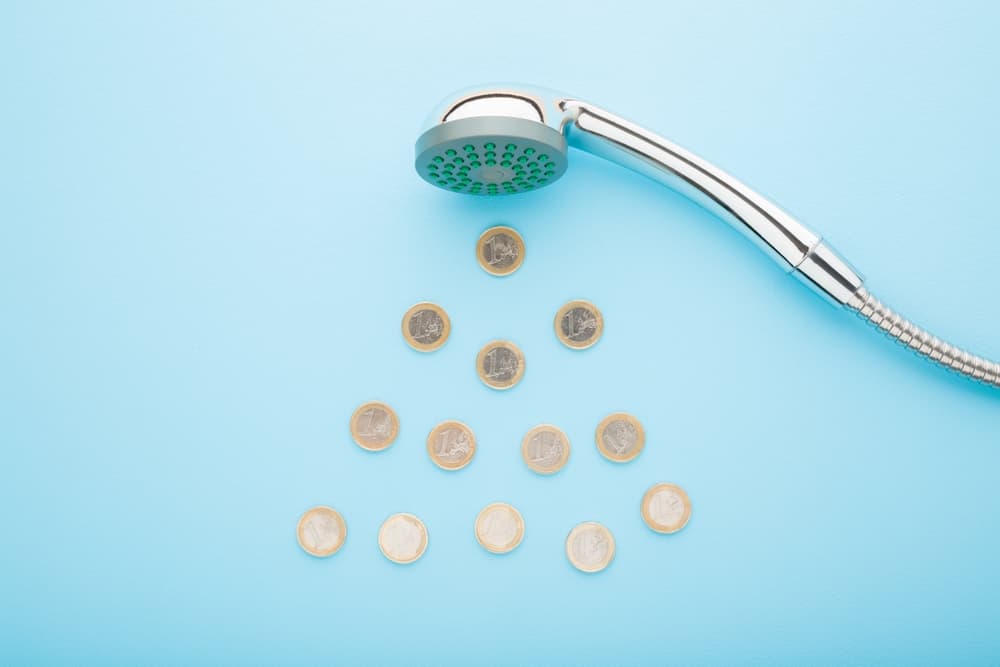With many families feeling the pressure from the increased cost of living, we’re all keeping a closer eye on our bills and budgets. It can be quite stressful when we receive a bill that is higher than we expect, especially for essential utilities.
If your water bill is higher than normal, don’t panic – there’s usually a simple explanation as to why this is. The best bet is first to look at the dates of your bill and check that it’s covering the usual period – this is especially true if you’ve recently moved, or had a meter fitted. It is also worth checking if your last bill was based on an estimate, and the most recent bill takes into account any undercharges from the last.
Once you’ve ruled that out, here are the next reasons to consider:
Increased Usage
Often the explanation behind a higher than normal water bill is the simplest – you’ve just used more water! The following could explain the increased usage:
More People staying at home
The average person uses 149 litres of water a day between drinking water, cooking, washing and cleaning. Therefore if someone new has moved in, or even if you’ve welcomed guests in to your home for a short stay, this would definitely justify a spike in your recent water bill.
Water Wastage / Overuse
Next, it would be good to consider the water habits of the people within your household. For instance, has someone started leaving the tap on while they brush their teeth everyday, or has someone started taking more extended showers or frequent baths. Is a household member washing their car regularly? Children quite often go through stages of accidentally use excessive water while playing or exploring the home – for instance, making “potions” in the sink.
All of these habits may not seem like a lot but they can add up over the course of your billing period. It might be worth talking to your family about reasonable best practices on water usage. Sometimes however the water increase across the family is completely valid and shouldnt be discouraged (for instance, a conscious effort to drink more water to stay hydrated) and therefore allow a little extra in your next budget for this.
New Appliance
Introducing a new appliance into your home can certainly have an impact on your water bill, often in ways that are not immediately obvious. Consider, for example, the installation of a new dishwasher. While this modern appliance promises convenience and efficiency in cleaning dishes, it may consume significantly more water per cycle than washing by hand. Plus the ease and convenience of a new appliance means it might get used more often, contributing further to the rise in bills. While new appliances can enhance our daily lives, they can also contribute to higher water bills if their usage isn’t managed carefully and efficiently
Water Leak
An undetected water leak can have a significant impact on your water bill, causing it to soar unexpectedly. Even seemingly minor leaks from worn pipes, or faulty fixtures and fittings can waste a substantial amount of water over time, which is directly reflected in your monthly utility statement. Every drop that escapes unnoticed adds to your water consumption and, subsequently, your bill. If left unaddressed, these leaks can lead to a steady increase in your water expenses, making it essential to promptly identify and repair any leaks to maintain control over your water bills.
Water Rate Increase
When your water company raises the price of water, it directly affects the base rate that you pay for the water supply itself. This means that you’ll be charged more for the same amount of water you use and could explain why your bill has gone up, even if your usage hasn’t changed. Unfortunately as the water company sets the price, there’s not that much you can do to change it. However, in order to counteract price rises, you can change your future budget to allow for the increased cost or look at reducing your usage. Another idea might be to look into a smart meter that provides real-time data on your water usage. This allows you to monitor your consumption more closely and adjust your usage accordingly.
Seasonality
The time of year can definitely cause your water bill to fluctuate. During the warmer months, particularly in the summer, water usage tends to increase due to activities like watering lawns and gardens, filling pools, and taking more frequent showers to combat the heat. These factors can lead to a noticeable uptick in your water bill. Conversely, in the colder months, outdoor water usage typically decreases, but indoor consumption may rise as people use more hot water for bathing and heating. Understanding these seasonal variations in water consumption can help you anticipate and budget for changes in your water bill throughout the year.
In Conclusion
If you find yourself wondering why your water bill has spiked unexpectedly, there are several potential explanations to consider such as a changed billing period, seasonality, increased water consumption, undetected leaks or water rate changes. By understanding these factors and taking proactive measures, you can better control and manage your water expenses.



